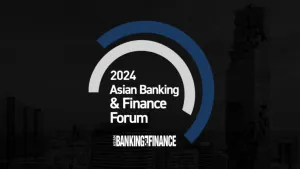
Thai banks' hire-purchase loans asset quality to hit lowest point in 2015
Relevant banks' performance likely to stabilise.
Fitch Ratings says the deterioration in the asset quality of Thai banks' automotive hire-purchase loans is likely to bottom out in 1H15, with the performance of banks dependent on this asset class likely to stabilise.
According to a release from Fitch Ratings, the ratio of non-performing loans (NPLs) to total auto loans in the banking system rose to 2.5% in 2014 from 2.0% in 2013, while special mention loans, which are delinquencies that are not yet classified as NPLs, rose to 8.3% of total loans from 7.7%.
The weaker asset quality was tied to the extremely high growth in auto loans - following tax incentives to encourage car purchases - of 22% in 2011 and 39% in 2012. That period of excessive growth, coupled with weak economic conditions, led to gradually increasing default rates as well as falling second-hand car prices. The performance of banks reliant on hire-purchase loans suffered as a result.
However, further downside is limited. The default risk on hire-purchase lending is usually highest during the first 24 months of the loan, and auto loans have grown at a much slower 8.4% in 2013 and decreased by 3.4% in 2014.
Here's more from Fitch Ratings:
Furthermore, most banks have tightened their underwriting standards over the past year, which is evident in their lower loan-to-value ratios and adjustments on their automobile price references (for vehicle pledging). Improved economic growth in 2015 (Fitch forecasts growth of 4.0%, compared to 0.7% in 2014) will also underpin auto-loan asset quality.
However, some risks do remain. Consumer leverage is high, with Thailand's ratio of household debt to GDP at 85% as of September 2014, while a slower-than-expected economic recovery could impact the debt-servicing ability of some of the banks' customers. Also, subdued farm income as a result of lower prices for agricultural products could put pressure on consumer incomes.
Nevertheless, in the event of another economic downturn, the large banks reliant on the hire-purchase business would be more resilient because of their more diverse loan portfolios, larger profit bases and higher capitalisation, which would enable them to more easily absorb losses on repossessed cars. However, a severe and prolonged economic downturn could pressure ratings.
As of end-December 2014, the proportion of hire-purchase loans to total lending for Thailand's commercial banks is as follows:
Kiatnakin Bank Public Company Limited: 67%
TISCO Bank Public Company Limited: 64%
Thanachart Bank Public Company Limited (A+(tha)/Stable): 56%
Industrial and Commercial Bank of China (Thai) Public Company Limited (AAA(tha)/Stable): 30%
Bank of Ayudhya Public Company Limited (A-/AAA(tha)/Stable): 24%
Siam Commercial Bank Public Company Limited (BBB+/AA(tha)/Stable); 9%.













 Advertise
Advertise










